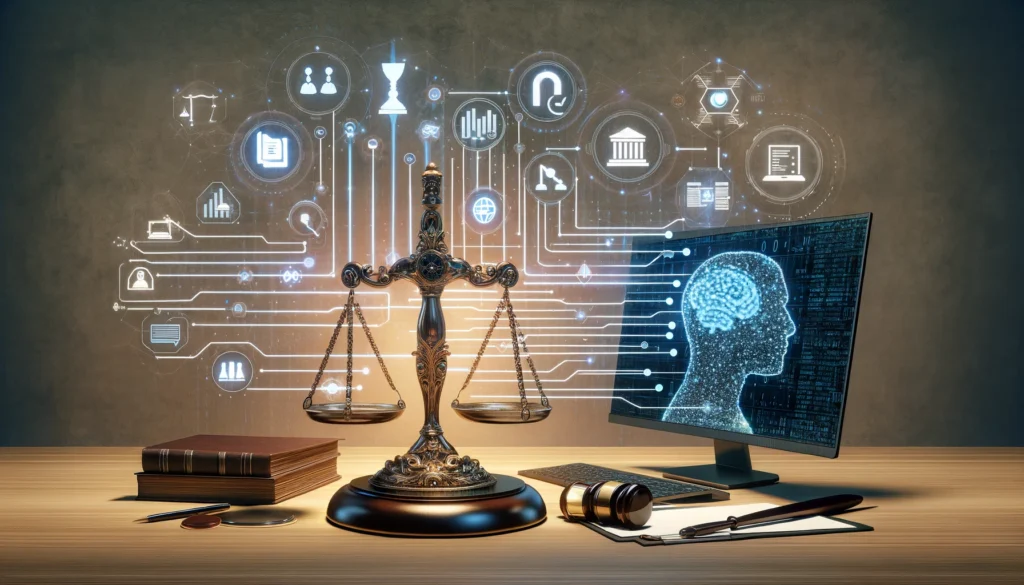
Reimagining Efficiency: The AI-Assisted Paralegal
The legal industry is experiencing a transformative shift, with technology increasingly redefining traditional roles. Corporate paralegals, in particular, are poised to benefit from innovative tools that enhance their efficiency and precision. Leveraging AI, specifically ChatGPT, for tasks such as drafting shareholder agreements can significantly streamline workflows, allowing paralegals to focus on higher-value activities.
In the digital age, AI capabilities have grown exponentially. By integrating ChatGPT into legal operations, corporate paralegals can produce accurate, comprehensive shareholder agreements more quickly. This change not only improves productivity but also elevates the role of paralegals within legal teams, empowering them to take on more complex and rewarding challenges.
Understanding the Basics: ChatGPT and Other LLMs
ChatGPT, a type of large language model (LLM) developed by OpenAI, harnesses advanced machine learning to generate human-like text based on input prompts. LLMs like ChatGPT can analyze vast amounts of data and produce coherent, contextually relevant content, making them invaluable for legal drafting tasks.
However, while ChatGPT can generate impressive drafts, it is not infallible. Its outputs require careful review to ensure compliance with legal standards and specifics. Understanding the model’s capabilities and limitations is crucial for effectively leveraging its potential in legal contexts.
Laying the Groundwork: Preparing for Prompting
Before utilizing ChatGPT for drafting shareholder agreements, thorough preparation is essential. This involves gathering pivotal data and clearly defining the context to ensure that the resulting content meets the required standards.
Key preliminary data to collect includes:
- Jurisdiction-specific clauses and regulations
- Relevant shareholder details
- Company-specific policies and terms
- Applicable legal principles and guidelines
Collecting this information upfront allows for more precise interaction with ChatGPT, ultimately leading to better-quality drafts. Setting a clear context at the beginning of the AI interaction paves the way for more productive and tailored outcomes.
Mastering the Art of Prompts: Techniques for Precision
Effective prompting is at the heart of leveraging ChatGPT’s capabilities for shareholder agreement drafting. Crafting clear, precise prompts can significantly impact the accuracy and relevance of the output. For instance, instead of a vague request like, “Draft a shareholder agreement,” use specific prompts such as, “Draft a preamble for a shareholder agreement including specific jurisdictional clauses for California.”
Examples of nuanced prompts tailored for shareholder agreements include:
- “Create a clause outlining the rights and obligations of minority shareholders in a Delaware-based company.”
- “Draft provisions for dispute resolution in a shareholder agreement for a tech startup located in New York.”
- “Generate a section on dividend distribution policies for a multinational corporation headquartered in Texas.”
Incorporating legal principles and specific contexts within prompts is crucial. For instance, using iterative prompting allows for refining outputs through successive interactions, ensuring that the final draft meets all legal requirements and client expectations. Techniques such as asking for clause variations or requesting summaries of legal concepts can also enhance the drafting process.
Enhancing Draft Quality: Advanced Features and Customizations
Beyond basic prompting, ChatGPT offers advanced features that can further refine the quality of shareholder agreements. Utilizing these capabilities can include:
- Incorporating complex, custom legal clauses tailored to specific jurisdictional requirements
- Using specialized legal language and terminology to ensure precision and clarity
- Ensuring compliance with local regulations and best practices through tailored adjustments
These enhancements can be achieved by providing detailed instructions and context within prompts, allowing ChatGPT to generate more sophisticated and customized outputs. Leveraging these features effectively can elevate the overall quality of the drafted agreements.
Quality Control and Verification: Ensuring Legal Soundness
Reviewing AI-generated content is an indispensable step in the drafting process. Best practices for quality control include:
- Cross-referencing AI-generated clauses with existing legal standards
- Verifying the accuracy of terms and conditions against jurisdiction-specific regulations
- Conducting thorough reviews to identify and rectify potential legal inconsistencies
Steps for finalizing drafts should include detailed reviews by experienced legal professionals to ensure the agreements meet client needs and comply with all relevant legal requirements. This review process safeguards the integrity and legality of the final documents.
Practical Tools and Resources: Beyond ChatGPT
While ChatGPT is a powerful tool, additional AI resources can further enhance efficiency in legal drafting. Tools such as:
- Document management systems
- Legal research databases
- Other AI-driven drafting assistants
These integrations can streamline the drafting process, ensuring comprehensive and legally sound agreements. Using a combination of tools allows corporate paralegals to manage documents more effectively and stay updated on the latest legal trends and databases.
Future Prospects: The Evolving Landscape of Legal Tech
The rapid advancement of AI continues to shape the future of legal technology. Prospective developments may offer even more sophisticated tools, further automating routine tasks and enhancing the capabilities of legal professionals. Continuous learning and adaptation to these technological changes will be vital for staying competitive in the legal field.
Conclusion: Transforming Challenges into Opportunities
Embracing AI for drafting shareholder agreements offers numerous benefits, from increased efficiency to improved document quality. Corporate paralegals who leverage these technologies stand to gain a significant competitive edge. By staying agile and innovative, legal professionals can transform the challenges of integrating AI into the legal workflow into substantial opportunities for growth and enhancement.


